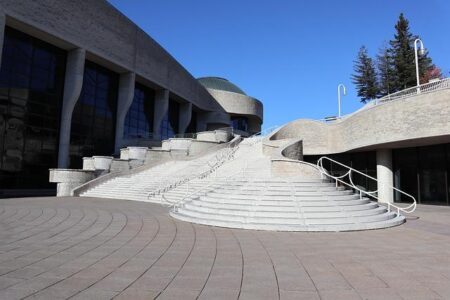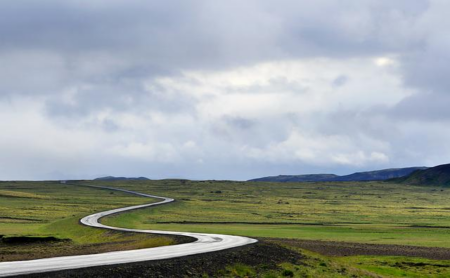In the world of professional cycling, few rivalries are as captivating as the evolving tensions within the UAE Team Emirates-XRG squad, particularly involving rising star Juan Ayuso. As allegations of discord circulate, the reactions from two cycling legends, Miguel Induráin and Pedro Delgado, provide contrasting perspectives that highlight the complexities of team dynamics in high-stakes sports. Induráin, revered for his strategic mind and calm demeanor, cautions against inflaming the situation, while Delgado, known for his passionate approach, argues that such conflicts are a natural byproduct of competitive spirit. This article delves into their insights, examining the implications of their comments as the cycling community watches closely, pondering: Is it wise to add fuel to the fire?
Analysis of Juan Ayuso’s Tensions with UAE Team Emirates-XRG
Recent tensions between Juan Ayuso and UAE Team Emirates-XRG have sparked considerable debate in the cycling community, drawing attention from renowned figures such as Miguel Induráin and Pedro Delgado. Their insights reveal varying perspectives on the fallout, with Induráin advocating for a more diplomatic approach. He argues that mutual respect is essential for both the team and the rider’s future, stating that “ambition should not overshadow collaboration.” In contrast, Delgado emphasizes the need for fierce competition, suggesting that occasional discord is a natural part of high-stakes sports, where pressure can lead to both conflicts and breakthroughs.
The unfolding situation has raised critical questions about team dynamics and rider autonomy. Analysts have broken down key factors contributing to this rift, including:
- Team Leadership Style: Differences in management philosophy can lead to misunderstandings.
- Ayuso’s Performance Pressure: Expectations on young talent can strain relationships.
- Contractual Ambiguities: Clarity on roles and responsibilities is crucial.
As the speculation continues, the impact on the team’s overall performance and Ayuso’s career trajectory remains to be seen. The interplay of personality and professionalism within the sport is under scrutiny, with many watching closely to see if reconciliation is possible or if this tension will only serve to deepen divides.
Miguel Induráin Advocates for Unity in Cycling Teams
In a recent interview, Miguel Induráin emphasized the importance of solidarity and teamwork in the face of internal conflicts, particularly regarding the controversy surrounding Juan Ayuso and UAE Team Emirates-XRG. Induráin, a five-time Tour de France champion, stated that fostering unity within teams is essential for achieving collective goals. He expressed concern that public disputes can disrupt team harmony and undercut performance, highlighting the need for riders to communicate openly and resolve differences amicably. He urged both athletes and management to prioritize collaboration over conflict to maintain a focused and determined team environment.
On the contrary, Pedro Delgado took a different stance, suggesting that rivalries can often fuel motivation and lead to greater performances. While he acknowledged the potential drawbacks of discord, Delgado argued that a little tension within teammates might spark healthy competition and ultimately benefit the team. He maintained that every athlete must navigate their own path, and that individual strengths should be honed, even if it occasionally means stepping on each other’s toes. Delgado’s perspective reflects a belief that the world of professional cycling thrives on both teamwork and the relentless pursuit of personal excellence.
Pedro Delgado Calls for Strategic Conflict Resolution in Sports
In the wake of recent tensions between Juan Ayuso and UAE Team Emirates-XRG, Pedro Delgado has stepped forward advocating for a more measured approach to conflict resolution in sports. His perspective emphasizes the importance of communication and understanding within teams, arguing that public discord can irreparably damage both individual relationships and overall team cohesion. He urged fans and team officials alike to consider the long-term implications of conflicts, suggesting that:
- Open Dialogue: Promoting conversations rather than confrontations can help clarify misunderstandings.
- Focus on Goals: Re-centering discussions around shared objectives may unite individuals rather than divide them.
- Mediation Role: Incorporating neutral parties in team conflict can facilitate resolutions that are satisfactory to all involved.
In contrast, Miguel Induráin has adopted a more combative stance, suggesting that contests should be fierce and that the emotional stakes help drive performance. He believes that while tensions can escalate, they often reveal the true character of competitors and enhance the intensity of the sport. Induráin points out that some of sport’s most riveting moments arise from conflicts that capture public interest. He highlights the necessity for athletes to harness these moments for personal and professional growth. In this context, he posits that:
- Passion as Fuel: Harnessing anger can lead to exceptional performances on the field.
- Authenticity: Genuine rivalries engage audiences and can boost sport’s profile.
- Resilience Building: Facing adversity strengthens both athletes and teams.
In Retrospect
In conclusion, the fallout between Juan Ayuso and the UAE Team Emirates-XRG has sparked a fierce debate within the cycling community, with Miguel Induráin and Pedro Delgado offering contrasting perspectives that highlight the complexities of professional sports. Induráin emphasizes the importance of unity and support within a team, arguing that internal conflicts can lead to a detrimental atmosphere, while Delgado suggests that disagreements can spur motivation and improvement. As the cycling world watches closely, the implications of this dispute extend beyond individual relationships, influencing team dynamics and performance on the road ahead. As the season unfolds, it remains to be seen how this conflict will shape the future for Ayuso, UAE Team Emirates-XRG, and the broader cycling landscape. One thing is certain: the stakes are high, and the dialogue surrounding this issue is far from over.











